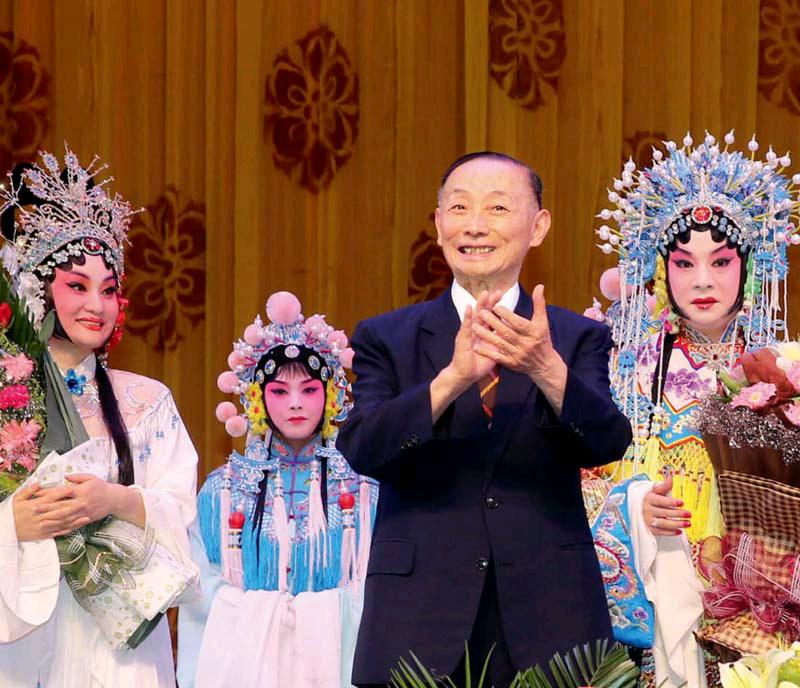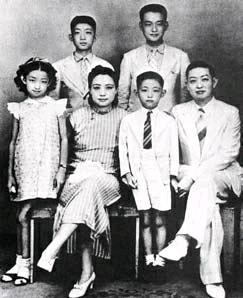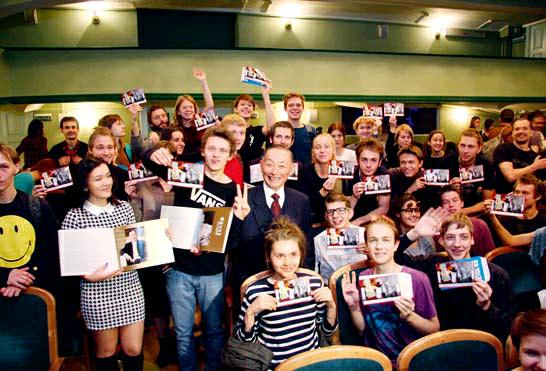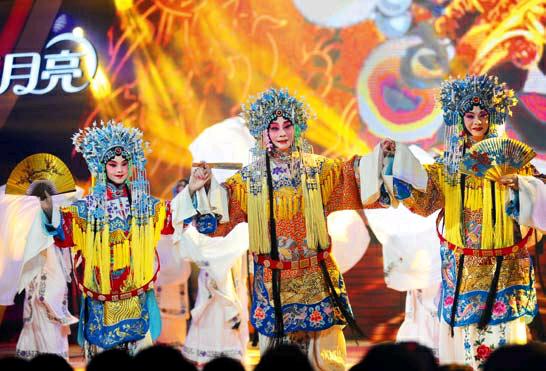Mei Baojiu:A Peking Opera Life
by+Ru+Yi
On April 25, Peking Opera master Mei Baojiu, having just celebrated his 82nd birthday in late March, passed away in Beijing due to illness. Mei had fallen into a coma after a bronchial spasm. As the only son to succeed the career of his father, the legendary Chinese theater mogul and founder of the “Mei School” style of Peking Opera, Mei Lanfang, Mei Baojius passing drew massive attention and stirred widespread grief from both home and abroad. In his later years, alongside performing Peking Opera, Mei invested considerable time in popularizing the art, cultivating young actors, and passing on the techniques. Just days before his final hospitalization, Mei insisted on giving a lecture on Peking Opera performance to both foreign and Chinese students at a university, and even brought a whole set of costumes and props despite early signs of bronchial spasms. Promoting opera was always his priority.
The Only Successor
In 1934, Mei Baojiu, the youngest child in the Mei family, was born in Shanghai. Of all the children of his generation in the clan, only he and his older sister Mei Baoyue delved into the art of Peking Opera. As for the Mei-School dan art created by his father, Mei Baojiu was its only inheritor.
Dan refers to any female role in Peking Opera. The major reason dans were played by male actors in feudal China was because women were not allowed on stage. Peking Opera, which rose in the late 18th Century and became fully developed and recognized by the mid-19th Century, featured male actors playing female roles from the very start. Only in the late Qing Dynasty (1644-1911) did females begin portraying dans in Peking Opera. Only in the early years of the Republic of China(1912-1949) period did co-ed productions featuring both male and female actors emerge. Mei Lanfang was one of the most famous Peking Opera artists in modern Chinese history, and he was known particularly for his dan roles. Mei Lanfang, Shang Xiaoyun, Cheng Yanqiu and Xun Huisheng are collectively known as the Four Great Dan Actors in the golden era of Peking Opera. With his unique acting and singing styles, the senior Mei took on almost every type of dan role and thoroughly shattered the rigid distinctions between qingyi (dignified, graceful females), huadan(vivacious young women), and daomadan(female warriors). His smooth, perfectly timed, poised style has come to be known as “Mei School” in opera circles.
After starting to learn Peking Opera at the age of 10, Mei Baojiu made his stage debut at 13. Only five years later was he qualified to perform with his father. Compared to his fathers innovative reform of the opera, Mei Baojiu is considered more conservative. During his life, he spent an enormous amount of time restoring, adapting, and compiling his fathers masterpieces, but seldom rehearsed new plays. “I try my best to perform just as my father did on stage,”he once declared. “I dare not make any changes.” However, it wouldnt be fair to say Mei Baojiu lacks innovation. He showed excessive boldness in work ranging from his symphony version of Drunken Beauty to a revised Peking Opera Tang Concubines. In his later years, he supported renowned Chinese director Chen Kaige when he was developing a biopic about Mei Lanfang. When asked the persistent question of how to balance tradition and reform of Peking Opera, Mei always noted the theory of “preserving the spirit while changing the form.”“Todays aesthetic tastes are different from 50 years ago,” Mei once remarked in an interview. “We as actors should follow the trends of the times. But if we change something, it should be based on a solid foundation and be valid. Only when we follow this rule will the audience accept our changes. For example, if we added disco music to the Mei School, it would be a disaster. We should stick to the spirit of an art while seeking a wide variety of expression. When I was recording the soundtrack for Imperial Concubine Yang with the China Philharmonic Orchestra, we added chords and background music that made the singing stand out and bestowed the vocals a special atmosphere.” Mei believed that the core of “keeping the spirit while changing the form” optimally preserves the art of Peking Opera while upholding the roots of Mei School and making ambitious reforms of artistic form, accompaniment, and dramatic pacing to better serve contemporary audiences.

The Mei School
Combining traits of qingyi, huadan, and daomadan, the Mei School cast a farreaching influence on Peking Opera. The most important feature of the school is the de-emphasis of any striking feature, which is considered to conform to traditional Chinese aesthetics of “maintaining balance and harmony by directing the mind to a state of constant equilibrium.” However, the lack of a signature feature doesnt mean that the Mei School is a loose style. “Performance should never be conservative,”opined Mei. “The Mei School sets high requirements for actors basic skills. Put your heart into the performance and conquer your audience, and then you may find the secret path to the Mei School – thats how we instructed our actors.”
In terms of teaching and passing on the Mei School, Mei placed special emphasis on understanding Chinese culture. “The best way to perform Peking Opera, ultimately, is actually related to culture,” Mei declared on many occasions. His father befriended and learned from a number of painters and writers. To better perform different roles, the senior Mei spent considerable time on Chinese calligraphy, painting and literature. Mei Baojiu also began formal education before studying opera, and his learning never ceased. “Peking Opera actors should read ancient Chinese literature to better understand various characters,” he advised. “Actors portraying historical stories or legends should first understand the tales from a cultural aspect. Only when they do this will their performances be true to life. Thats another demanding trait of the Mei School.”
In Meis eyes, Peking Opera actors should never deviate from their respective schools. “Every river has its source and every tree has its root,” he said. “This philosophy applies to Peking Opera actors and illustrates how the art has been passed from generation to generation.” Mei Baojiu was more than willing to share time-honored records, scripts, and photos related to his father with his students. “I want them to know how our school was passed down so they can pass it on to generations to come. Passing from generation to generation will preserve our treasure forever. Traditional Chinese opera artists emphasized that professionals should be the key players in the process of passing on an art, a philosophy that still makes sense today.”
Another Side of His Life
If not for his parents wishes, Mei might have become an engineer or machinist.
Along with Peking Opera, machinery was Meis other lifelong passion. He started drawing mechanical diagrams as a child. He loved everything related to electricity, and was also fascinated with bicycles, motorcycles, airplanes, and especially cars.
Citing safety concerns, his parents forbid him from driving while they were alive. After both passed away, Mei finally got a license at the age of 50. He was still driving his Volvo around at 75. The opera master even once piloted a friends jet for 30 minutes, and considered the experience“far from enough.”
Mei actively embraced other types of music too. He once revealed that he owned every one of Michael Jacksons records, to the astonishment of everyone present. He also expressed fondness for Celine Dion on many occasions. “Life should be colorful, and we should know at least a little bit about everything. If I knew nothing but Peking Opera, my life would be so boring and wasted. ”

